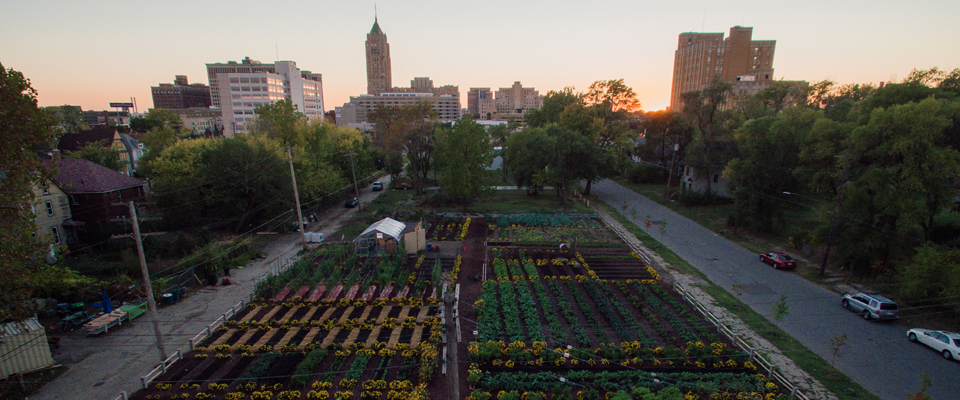Beginning Urban Farming
City gardens and urban farming create an opportunity for fixing food insecurities within a community or to simply save money on household food costs. Gardening within cities has become increasingly popular in recent years, and urban greenhouses and garden plots are popping up across the nation.
With this, brings many new and inexperienced growers. Beginning a garden is exciting, but growing in or near a city presents a number of obstacles that gardeners haven’t traditionally faced. These obstacles mixed with inexperience can quickly turn disastrous. Many urban growers jump right in without taking the time to learn the basics, leading to poorly performing gardens.
It is essential to start with a plan. One blunder many urban growers make is to think that gardens can just be started anywhere. Often times gardens would be more successful if they were simply shifted a few feet to one side or if the grower had chosen a different set of crops. Each grower should do their research in order to put themselves in the ideal opportunity for success.
When urban farmers work with GrowSpan, they have the benefit of expert consultation. This is an invaluable asset for beginning or experienced growers, as GrowSpan can help customers make the most of their space.
Urban Farming Basics
Gardening, especially in a city, all comes down to light and the growing medium. Each urban greenhouse or garden will need plenty of sunlight. This can be difficult to obtain with tall buildings, and if this is the case, a greenhouse with supplemental lighting maybe necessary. When searching for a garden plot, look for a piece of land that gets about six hours of sun each day. Some of the most popular fruits and vegetables, including tomatoes and peppers, need this much sun to for proper fruit production. There’s no point in gardening if crops don’t fruit.
If there is an area that gets a lot of shade during the day, growers can work around this by producing crops that require less sun. Arugula, broccoli, garlic, cauliflower and celery all do well in shaded areas. Growers should also avoid areas that are battered with sun all day, as too much sun can be extremely damaging.
Soil health is also an issue when growing anywhere, but especially in a city. Healthy soil is a rarity in cities, but this doesn’t stop many from trying to grow directly in the soil, no matter its health or consistency. Healthy soil will require organic matter, including organisms, plenty of water air and minerals. Before starting to grow in existing soil, it should be tested to see if it will need any amendments to improve its health.
Growing in pots or raised containers is usually a good option for city gardens. This allows growers to have fresh and healthy soil right from the start. Beginning with healthy soil also allows growers to eliminate the time that is needed for soil amendments to start working, allowing growing to begin as soon the garden or greenhouse is ready. It is important to keep in mind that regular potting soil usually isn’t good for more than one season. For larger plots, using potting soil can get expensive and wasteful, so they often seek an alternative. Many start with a mix of compost and soil.
To find out more about he importance of healthy soil and how to achieve it, visit this article published by the University of Minnesota Extension.
For urban farming GrowSpan commonly recommends hydroponics systems. They come in a number of sizes and can be designed to fit any grow room or greenhouse. Hydroponics systems don’t require soil, so growers can save time and money. Best of all, these systems give growers complete control. Growers can input the nutrients their plants need the most, allowing for superior harvests. When used in an urban greenhouse or grow room, high-quality crops year-round can be expected.
To find out more about hydroponics systems, visit GrowSpan’s parent website, Growers Supply.
Slow down before beginning urban farming, especially if you’re a beginner. If its the first time gardening, take the time to do the necessary research. Anybody can be a successful gardener, but it is essential to know the basics.

